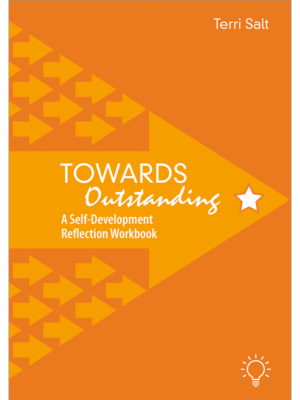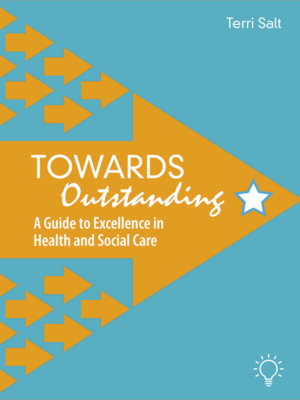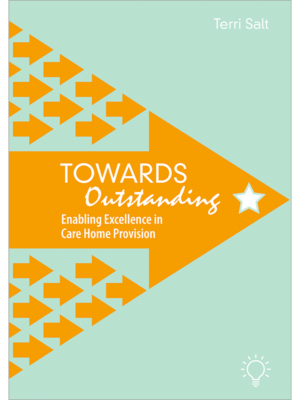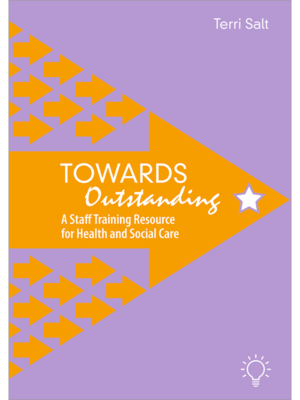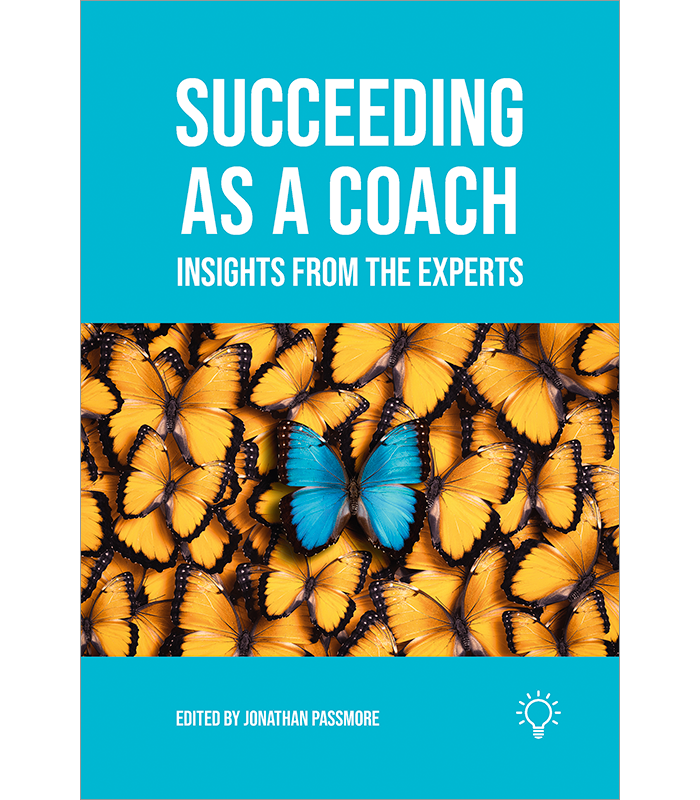
Succeeding as a Coach is aimed at coaches who have completed their training and are looking to take the next steps on their professional journey. It provides insights from expert practitioners in a uniquely concise format, with frequently asked questions discussed in bitesize chapters that allows any coach or trainee to quickly find the specific guidance they need to add new ideas to their coaching repertoire.
The content is divided into five sections: Section 1 deals with training, setting up in practice, attracting business and planning sessions; Section 2 looks at starting a session and establishing the coaching relationship; Section 3 covers core skills such as reflection, listening, questioning and the coaching mindset; Section 4 explores how to manage time and close sessions; and finally Session 5 considers wider coaching issues such as supervision, personal development and developing self-awareness.
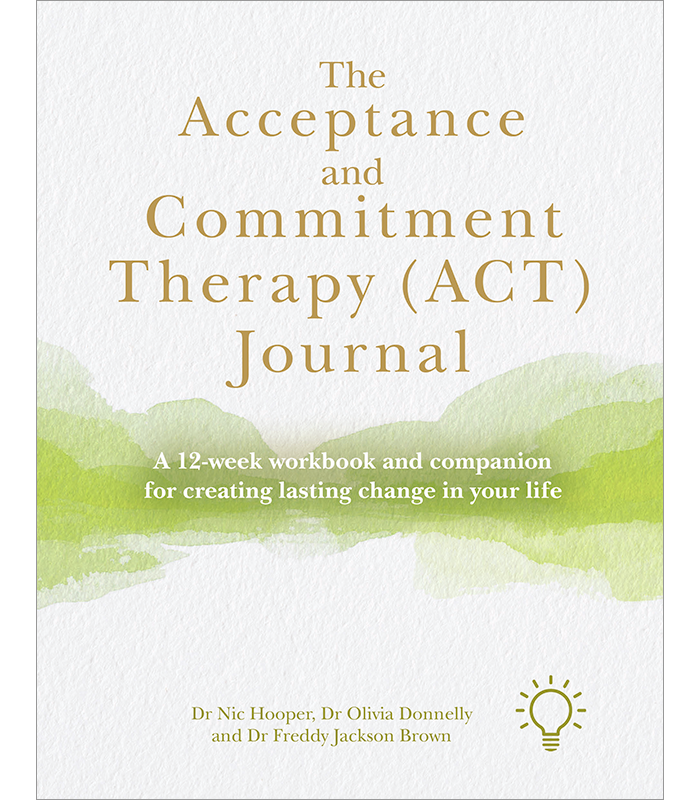
The Acceptance and Commitment Therapy (ACT) Journal
Life is often busy, demanding and full of challenges that can cause us to lose sight of what really matters. The Acceptance and Commitment Therapy (ACT) Journal is designed to help individuals to focus on the things that are most important to them by identifying personal values and putting them centre-stage where they can best guide actions and decisions.
Taking the form of a 12-week course of structured self-development, with ACT-informed guidance, reflection exercises, goal-setting tasks and inspirational quotations throughout, it is especially helpful for those currently engaged in ACT and other forms of brief therapy and/or coaching. However, the principles and lessons are relevant to anyone seeking to increase their personal wellbeing and build psychological flexibility – the ability to connect fully with experiences, including difficult thoughts and feelings, and pursue an authentic life.
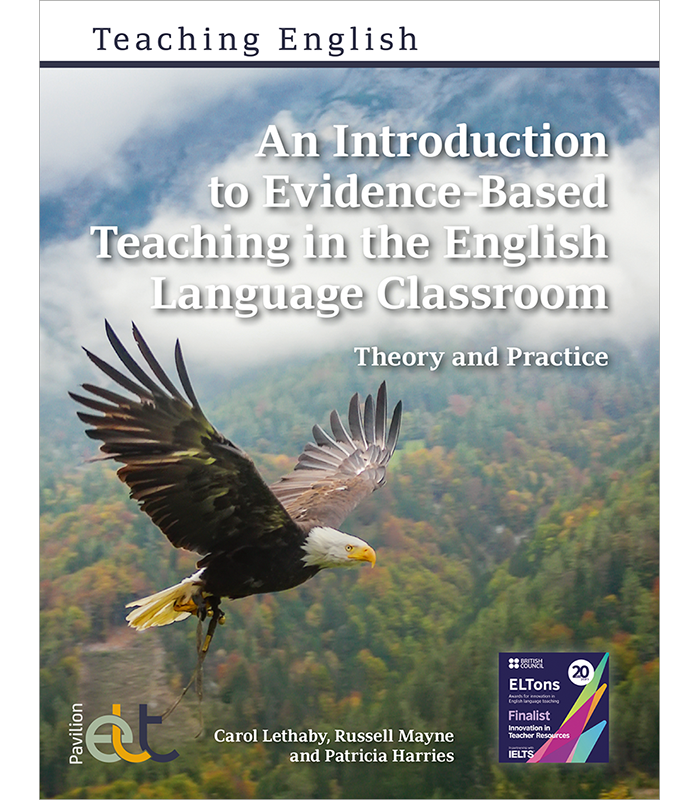
Do you want to learn more about the evidence, or lack of evidence, supporting common teaching strategies and procedures? An Introduction to Evidence-Based Teaching in English Language Classroom compiles the evidence in one place for you, rather than scattered across a variety of sources: online blogs, conference reports and disparate journal papers.
This practical and accessible resource begins by identifying what ‘evidence-based teaching’ is. It then outlines the key strategies, briefly describing how and why they are supported by evidence. Finally, it moves on to show the practical application of these strategies in ELT with concrete examples and activities.
By using the book, teachers, teacher trainers and educators will:
- have developed a greater understanding of what evidence-based teaching is and have the tools to evaluate teaching practices;
- know where to find research to back up evidence-based practice;
- understand the importance of evidence for how the brain works and how this knowledge helps to combat erroneous beliefs about teaching and learning;
- have increased their knowledge of the importance of prior knowledge to teaching and learning, and the evidence for this;
- understand how the memory works as well as cognitive load theory, and the evidence for this;
- have deepened their understanding of evidence-based teaching strategies and interventions;
- be able to contrast evidence-based ideas and practices with other teaching interventions not supported by research;
- have learned how to critically apply evidence-informed ideas and understand ideas and practices that are not supported by evidence;
- be able to evaluate strategies and interventions in the ELT classroom that have evidence to support or refute them.
It is designed to be a supplement to any initial or in-service teacher education course, plus as a useful resource for teachers at any level who are interested in evidence-based teaching in English Language classes. You should read alongside core teacher training texts, in order to be able to examine common teaching practices.
An Introduction to Evidence-Based Teaching in the English Language Classroom is part of the Teaching English series.
From the author:
“I think this book is quite different to other books on teaching and research (but then again, I would say that). A lot of books about research into teaching are written by researchers attempting to bring research findings to a more general audience. What we have attempted to do is something similar but as all of us are teachers, not researchers, we hope that this will give the work more of a teacher’s perspective on things… While we do mention learning myths and things that don’t have good evidence to support them it isn’t 200 pages of slamming learning styles. There is as much “what works” as “what doesn’t”. The book also features advice for teachers who want to look at research themselves.” – Russell Mayne. Read more insights from Russell in the full blog here.
Reviews:
“The blurb refers to this as a practical and accessible resource, which is certainly true… the tone was informative without being patronising and the overviews of research which has been done in various areas were fascinating… I believe it will prove itself as a useful book for the staffroom and on teacher development courses.” – Rachel Connabeer, Modern English Teacher (Vol 30, Issue 4)
These online materials are related to the handbook Keep Busy, Connect and Learn, by Julie Thorpe, Teresa Randon.
Click on a link to access and download the relevant resource material.
If you don’t have a copy of Keep Busy, Connect and Learn yet, you can order one here.
Downloadable resource
Keep Busy, Connect and Learn Resource (PDF)
This PowerPoint presentation relates to the training pack Supportive Clinical Supervision, by Bob Reiser and Derek Milne.
Click on the link to access and download the presentation.
If you don’t have a copy of Supportive Clinical Supervision yet, you can order one here.
Downloadable resource
Appendix: PowerPoint presentation (PPT)
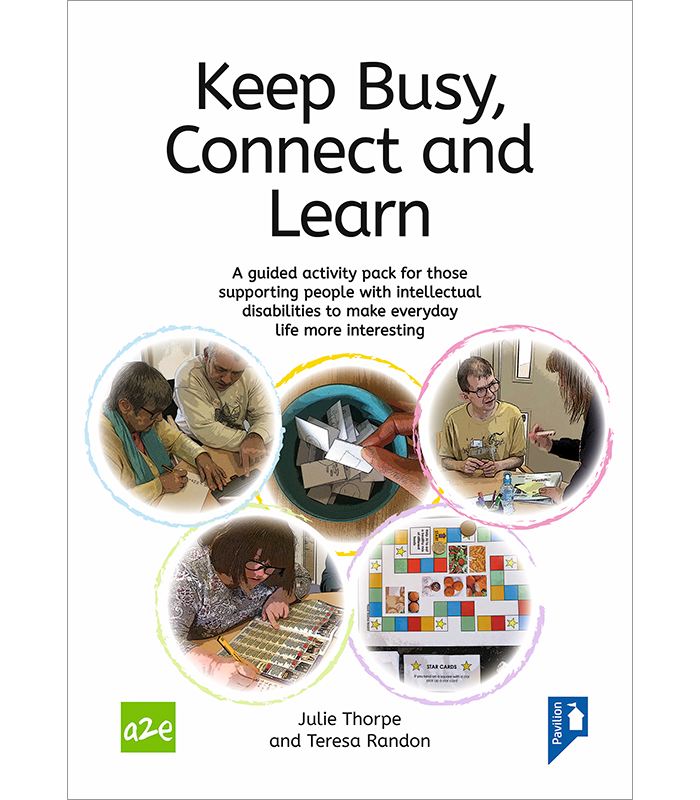
A guided activity pack for those supporting people with intellectual disabilities to make everyday life more interesting
A fully illustrated manual containing 52 stimulating, tried and tested activities and full guidance for those supporting people with learning disabilities and related needs who may be living restricted lives in the covid-19 pandemic, or would benefit from opportunities to connect and learn, either individually or in groups.





